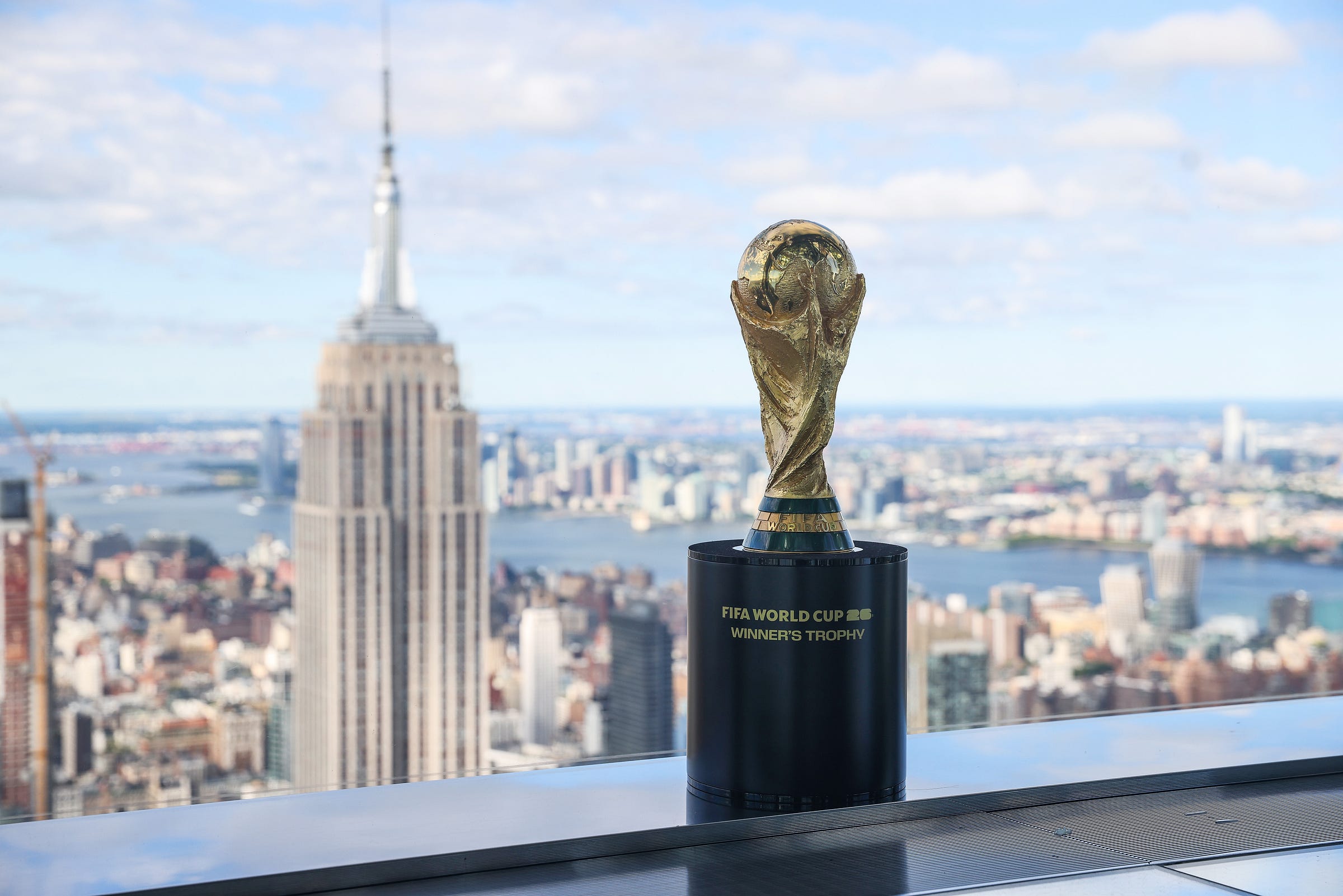How will the FIFA World Cup 26 impact tourism and services in New York and New Jersey?
Q&A with the New York New Jersey host committee
Declan, a Youth Media Forward participant based in New Jersey, conducted the Q&A below with Bettina Garibaldi, Chief Marketing & Communications Officer for the FIFA World Cup 26™ New York New Jersey Host Committee.
1. What is the role of the New York New Jersey Host Committee?
The New York New Jersey Host Committee is responsible for ensuring that the FIFA World Cup 2026™ is an unforgettable experience while maximizing its economic, cultural, and social benefits. Our role includes logistics planning, fan engagement, sponsorship development, and legacy initiatives that will leave a lasting impact on the region. We are working closely with FIFA, local governments, businesses, and communities to deliver a seamless and historic World Cup.
2. How would you describe the opportunity of hosting the 2026 Men’s World Cup, including the final match, for the region’s tourism and services industries?
Hosting the FIFA World Cup 2026™ Final is a once-in-a-lifetime opportunity for the tourism, hospitality, and service industries in New York and New Jersey. Millions of visitors will flood into the region, generating significant economic benefits for hotels, restaurants, transportation services, and retail businesses. On a global scale, this event reinforces NYNJ’s reputation as a world-class destination for major international events, attracting future investment and visitors well beyond 2026.
3. How are New Jersey and New York encouraging travel throughout their states?
Both New York and New Jersey tourism and other entities are actively developing regional tourism strategies to extend visitor stays beyond just match days. We anticipate these efforts including:
Curated travel packages showcasing cultural landmarks, dining, entertainment, and attractions across both states.
Destination marketing campaigns to highlight hidden gems and must-visit sites.
Collaborations that encourage multi-day and multi-city experiences.
Fan Zones and other community events throughout the region, ensuring everyone gets a taste and experiences the Tournament first-hand.
4. Are there initiatives to expand opportunities for minority- and women-owned businesses?
There is a strong focus on equitable economic participation. The Host Committee is in constant communication with partners to ensure diverse and underrepresented businesses have access to information, procurement and sponsorship opportunities.
The Host Committee is planning community-driven activations that showcase the cultural diversity of NYNJ while fostering economic inclusion. As an organization, we also encourage participation into and prioritize minority- and women-owned businesses for contracts. Lastly, we will be implementing community toolkits that offer ideas and guidelines on how local businesses can maximize this global phenomenon to its fullest.
5. Besides stadium renovations, will there be other infrastructure developments, such as transit or hotels? How will these impact local communities?
MetLife Stadium and other venues will undergo upgrades to meet FIFA’s technical requirements, but beyond that, there are broader infrastructure considerations, including public transit enhancements to manage increased foot traffic and ensure a seamless visitor experience. The goal is to ensure that these investments serve the community long after the World Cup by improving daily transit efficiency, tourism appeal, and economic growth in local neighborhoods.
6. What proportion of the 14,000 projected jobs will be in the services and tourism industry? How will tourism be sustained after the World Cup?
A significant portion of the 14,000+ jobs created will be in tourism, hospitality, event services, and transportation. To sustain tourism momentum after the World Cup, the region is positioning NYNJ as a global hub for future international sporting and cultural events, and our partners at the tourism boards are developing long-term tourism marketing campaigns to attract visitors beyond 2026. The aim is to use the World Cup as a springboard for long-term tourism growth, rather than a one-time economic boost.
7. What has been surprising and encouraging during the planning process?
The unprecedented collaboration between government officials, businesses, and community leaders has been inspiring. The level of enthusiasm and commitment from all stakeholders underscores how special this moment is—not just for soccer fans, but for the entire region. Seeing how many people recognize the once-in-a-lifetime nature of this event and are eager to contribute to its success has been one of the most encouraging aspects of the planning process.
8. And finally, would you like to share any additional thoughts on the World Cup’s impact on tourism and services in NYNJ?
The FIFA World Cup 2026™ will be transformative for New York and New Jersey. Beyond the economic surge, it’s a chance to showcase our region’s diversity, innovation, and world-class infrastructure to a global audience. The event will leave a lasting legacy—positioning NYNJ as a premier destination for future international events while fostering long-term economic growth, cultural exchange, and community engagement.
Thank you!
Declan is a New Jersey-based participant in Youth Media Forward: meet the New York New Jersey participants here
********************
Through its “Generation 2026” initiative, the Centre for Sport and Human Rights collaborates with host committees, including the New York New Jersey host committee, on advancing safer, youth-inclusive sports.
Related content: Watch this short video interview with Candice Alonso, Chief Diversity Officer for the State of New Jersey




